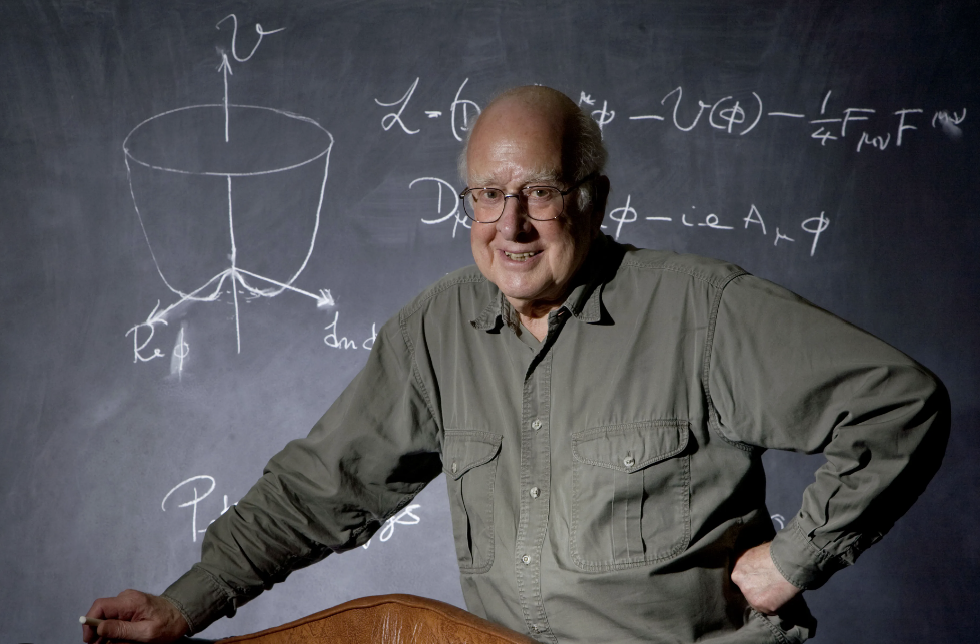
Experimental physicists around the world are probably mourning Peter Higgs today more than their theorist colleagues. That is because Peter Higgs was indelibly associated in their minds with the glorious, emotional day when the Higgs boson discovery was finally announced, on July 4th 2012. On that day Higgs was a special guest in the packed CERN auditorium, to witness the announcement. When he was given the microphone he famously remarked that it was incredible that the particle could be discovered within his lifetime - prompting some of the bystanders to reply "not only your lifetime, Peter!". Indeed, it had taken many experimentalists a good part of their own lifetime to put that particle in the bag, too.
While Higgs' contribution to the theory of elementary particles is arguably not as large as that of a few other theorists such as Weinberg, Salam, or Glashow, he found himself working on the right topic at the right time, and this is always something that history rewards highly - in this case with a particle that will forever carry his name.
More in general, the story of the hypothesis of the Higgs field, its integration in the Lagrangian density of electroweak interactions, the proofs of renormalizability of the theory, and the subsequent string of discoveries and experimental proofs that followed -from weak neutral currents to the gluon, and then the J/psi meson, the bottom quark, the W and Z bosons, the top quark, and finally the Higgs boson- is such an amazing one that I believe it should be taught in elementary school, then in middle school, and then again in high school, pretty much as it is currently done with ancient history in several countries. You know, just to make sure no student misses it by catching a flu at the wrong time.
But can the science around the Higgs boson and particle physics in general be taught to elementary school students? Of course it can - we only need to package it in the correct way. And should it be taught? Of course! At that age kids are ready to absorb the excitement of adults for science, like sponges waiting to be sprinkled with water. The passing of Peter Higgs should be a good pretext for intensifying our outreach to students of all ages.
Anyway - thank you for that paper on Physics Review Letters, Peter. And thanks to your reviewer (Joichiro Nambu) who pushed you in the right direction to add the hypothesis of the scalar boson to it!





Comments